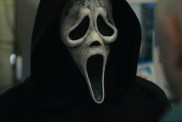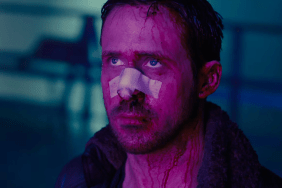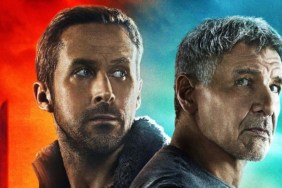“Atonement” Cast:
Keira Knightley as Cecilia Tallis
James McAvoy as Robbie Turner
Romola Garai as Briony – 18 years old
Saoirse Ronan as Briony Tallis – Age 13
Brenda Blethyn as Grace Turner
Vanessa Redgrave as Older Briony
Juno Temple as Lola
Directed by Joe Wright
“The Kite Runner” Cast:
Khalid Abdalla as Amir
Homayon Ershadi as Baba
Zekeria Ebrahimi as Amir (child)
Ahmad Khan Mahmidzada as Hassan (child)
Shaun Toub as Rahim Kahn
Nabi Tanha as Ali
Ali Dinesh as Sohrab
Saïd Taghmaoui as Farid
Atossa Leoni as Soraya
Abdul Qadir Farookh as General Taher
Maimoona Ghizal as Jamila
Abdul Salam Yusoufzai as Assef
Elham Ehsas as Young Assef
Directed by Marc Forster
(Note: This dual review is intended to help people choose between two adaptations of popular best-selling books coming out in the next two weeks)
Analysis:
The difficulties in adapting a beloved bestselling novel to the screen in a way that can appease readers and a less literary audience are legion, which is probably why some of the better adaptations are saved for this time of year. Two such movies attempt to fit stories that span significant periods of time into a cohesive two-hour slot, both containing literary challenges that some might feel would be impossible to translate into film. Ironically, both of these stories deal with mistakes made when the main characters are younger, decisions that greatly affect the destinies of those around them causing repercussions that haunt them for the rest of their lives.
At least director Joe Wright and screenwriter Christopher Hampton have the home court advantage with Ian McEwan’s “Atonement,” a period film that inserts an epic romance into a classic British mystery and a war drama, each placed in their own well-defined act. Adapting Khaled Kosseini’s “The Kite Runner” might have been a slightly larger challenge for director Marc Forster and screenwriter David Benioff, both of whom had to imagine the world of Kabul, Afghanistan pre-and-post the Soviet invasion of 1979, with only one actor that may be recognizable to Western audiences, that being Khalid Abdalla, one of the nameless terrorists in Paul Greengrass’ “United 93.” Then again, this is Forster’s fifth or sixth film compared to “Atonement” being Wright’s second feature after 2005’s “Pride & Prejudice.” Wright has far more difficult material to work with, since McEwan’s novel starts as one thing, ends up as something else and is never quite what it seems. It’s an extremely British story, almost to a fault, which Wright successfully turns into an intricate genre-melding film.
By comparison, Hosseini’s novel is a more immediate, accessible story dealing with universal feelings. It’s a beautiful rich tale based around a young Afghan writer and how his betrayal of a childhood friend follows him for the rest of his life. It starts in the present day with Khalid Abdalla’s Amir receiving a phone call from his past, then quickly flashes back to Kabul in 1978 where he’s inseparable from his best friend Hassan, the son of his father’s servant. Amir stands by while something horrible happens to Hassan, and that act of cowardice will haunt Amir for the rest of the film, as he and his wealthy father are forced out of Kabul by the Soviet invasion and make their way to America, a harrowing journey full of indignities. After seeing Amir make his way in America, we’re returned to the opening scene which takes place in 2000, and Amir is urged by a friend of his father to return home to “make things right” for what happened when he was a child.
Wright’s second feature film opens in the British countryside at a giant estate in the days preceding WWII, and we’re thrust into the turbulent love triangle between 13-year-old playwright Briony Tallis (Saoirse Ronan), her older sister Cecelia (Keira Knightley) and Robbie Turner (James McAvoy), the son of the household maid. Robbie’s hopes of going to medical school are destroyed on a fateful night where he’s fingered by the jealous Briony for a crime he didn’t commit, and four years later, Robbie is fighting on the French warfront, since it was a more viable option than going to jail. As he pines to return to Cecelia, the two sisters, no longer on speaking terms, are working as nurses, and the older Briony (Romola Garai) still feels tremendous guilt over what she did.
The writing in both films is impeccable, noteworthy for their ability to take the respective novelist’s words and translating them into cinematic images. Christopher Hampton’s realization of McEwan’s complex novel is a revelation, though the semi-linear method of telling the story sometimes makes it hard to figure out what’s going on, showing a few events from two different points-of-view. Even so, the complexities of the story helps to keep it so riveting. On the other hand, one has to commend Forster and Benioff’s diligence at keeping the tone and feel of Hosseini’s novel by casting two young non-actors from the region to play the kids and maintaining the Dari dialect which makes what we’re watching feel so much more real than “Atonement,” which is very much about the actors’ performances.
“Atonement” reunites Wright with his “Pride & Prejudice” star Keira Knightley, but Cecelia often becomes a secondary to Brionny and Robbie’s stories. In actuality, this is James McAvoy’s movie, finally giving him a chance to show his range in a role that has him playing a young, fresh-faced young man one moment and a weary war-savaged soldier the next. The fact that McAvoy is barely recognizable the first time we see him in the second act proves him to be an actor with far more depth than his peers. Equally impressive are the three talented actresses that play Briony, including young Saoirse Ronan, who steals much of the first act from the better-known stars, and Romola Garai, who truly embodies the role by creating a believable older version of Ronan dealing with the horrors of war and her own regrets. It doesn’t hurt that Wright has the older Briony being played by Vanessa Redgrave, who filmmakers have discovered they can put their cameras up close on, have her read a few lines and immediately elevate the film’s quality.
While the two young boys playing Amir and Hassan in “Kite Runner” are credible as is Khalid, the film’s breakthrough performance comes in the form of Homayon Ershadi as Amir’s father Baba, who’s introduced as a powerful take-no-bull diplomat in Kabul who is later reduced to selling items at a bazaar in his old age, a broken man separated from his country. The relationship between Amir and Baba is as crucial to the film as it is to the novel, but the latter does a better job of handling it, while in the film, it’s quickly forgotten once Amir returns to Kabul to find his former childhood friend’s son.
As much as the films are about the characters, these visionary directors find ways to flex their cinematic muscles, in Wright’s case by creating a vast scene of wartime carnage on the beaches of Dunkirk filmed via a single extended tracking shot where we get to see every minute detail before a final breathtaking shot that shows the bigger picture. It’s a jaw-dropping sequence that some might feel is gratuitous, but will then want to see it over and over to try to figure out how it was done. Forster’s palette to play are the amazing kite battle scenes, which inspired the book and film’s title, and though it’s hard to determine how much is real or computer-generated, seeing the skies of old Kabul filled with these colorful kites swooping and diving as the camera puts you up in the air with them really takes one’s breath away. Forster’s ability to recreate this foreign land in a way that hasn’t been seen by American camera tends to impress more than the traditional settings in “Atonement.”
The technical quality of these films runs the entire gamut, but the most important aspect that deserves mentioning is the music, which plays such an important role in both films. Alberto Iglesias’ gorgeous score for “Kite Runner” mixes Afghan instrumentation and arrangements with his own Latin roots, and the stirring score for “Atonement” by Dario Marianelli is similarly used to build on the film’s themes by blending sound effects, such as Briony’s ever-present typewriter, into the music.
Both films lose steam in their second act as “Kite Runner” shifts to Amir and his father trying to adjust to living in America, and “Atonement” turns into a straight-forward war drama following McAvoy on the warfront, but both of them quickly recover, and Amir’s journey back to Afghanistan begins with a surprising revelation about Hassan that kicks off an exciting final act.
The Bottom Line:
“Atonement” is a stunning, powerful sophomore effort from Joe Wright, likely to have as much impact on second viewing even if you think you know everything, but in terms of an overall cinematic achievement, “The Kite Runner” eeks out a win for Forster’s ability to bring Khaled Hosseini’s epic vision to gorgeous life in ways that leaves an equally lasting impression on viewers as the novel did with readers.
“Atonement” opens in select cities on Friday, December 7, while “The Kite Runner” opens in limited release on December 14.










